‘Crazy Horse’: A Study in Erotic Abstraction
The cabaret's women are half-naked so much of the time that they are, as it were, clothed in their own nudity. More significantly, I think, the show often presents them very abstractly. In particular, the lighting presents this or that aspect of their bodies in such a way that they lose all particularity. They are not, in these representations, “women,” but are “woman.” I’m not saying that Frederick Wiseman's film lacks in bare breasts and bums—there’s more than enough of them to satisfy the merely lubricious.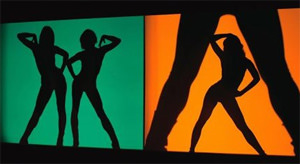
Crazy Horse is, if nothing else, an institution—a Paris nightspot which features half-naked young women all in a row, singing and dancing innocent-sounding numbers and occasionally contorting themselves into rather athletic single acts, involving ropes and other aids to the supposedly erotic presentation of the female body.
Frederick Wiseman, the greatest of American documentarians, has been a lifelong student of all sorts of institutions (schools, hospitals, the military, etc.) and is a part-time resident of Paris. It is logical, then, that he would sooner or later turn to the Crazy Horse for one of his studies of how an admittedly curious and minor fixture of the ooh-la-la life actually functions. He’s in his early 80s now, and entitled to have some fun.
But I’ll bet even he, this deadpan ironist, is somewhat surprised at how “Crazy Horse” has turned out—which is as a study in how the ostensibly erotic can be turned into an abstraction. I’m not saying that his film lacks in bare breasts and bums—there’s more than enough of them to satisfy the merely lubricious. But that’s not the point of the exercise. The women are half-naked, both on stage and off, so much of the time that they are, as it were, clothed in their own nudity. More significantly, I think, the show often presents them very abstractly. In particular, the lighting presents this or that aspect of their bodies — a glimpse of thigh here, a bit of bosom there—in such a way that they lose all particularity. They are not, in these representations, “women,” but are “woman.”
In other words, the Crazy Horse dancers are exactly the opposite of, say, an American burlesque stripper, involving us in the primitive rituals of stripping—how much to take off, in what spirit—shyness, teasing, flaunting what-have-you. They don’t even have the relationship with their audience that a pole dancer has. To put it simply, no transaction with the crowd takes place. They are perhaps to be admired, but really that admiration is directed to their little song-and-dance numbers, which they just happen to be doing bare-breasted. And so what?
To me, the film’s most erotic sequence is one in which a group of young women try out for positions as dancers in the chorus. They are lined up on the stage, clad only in shoes and panties. Whatever defenses against this exposure the Crazy Horse regulars have developed, they have not. They do little dance routines they have developed, but that’s not the reason they are there. They are just there for the Crazy Horse staff to evaluate them in the crudest ways. Are they the right height? Do they move easily? Are they unembarrassed? It’s all very professional. And the staffers do their best to set them at ease. But the lack of distracting artifice reduces the occasion to, well, the bare essentials, and I must say the hopefuls exhibit great sangfroid. And perhaps demonstrate the secret of the Crazy Horse’s long-running success, which is to pretend to be a sex show but actually be something else—a miniature Ziegfeld Follies or Earl Carroll’s Vanities, that is to say a throwback to one kind of long-gone entertainment, enlivened by a little bit more naked flesh than heretofore (but not too much of it) and presented with a sort of anti-erotic, almost military precision.
In interviews, Wiseman presents the Crazy Horse staffers as hardworking, eager to keep up the unique standard of their enterprise and in one case making rather cosmic claims for the cabaret’s place in the erotic universe, which is OK, and kind of funny in its pretentious way. What is missing, though, is any sense of the women. As in the shows themselves, they are omnipresent, but they are silent as to their motives. We don’t know where they’re from, what their motives are, what hopes they hold for their futures. They are just, well, eye candy.
We wish it otherwise. We need someone to root for in this film and they are the only logical candidates. That, however, may be intentional. Maybe we need a mystery at the heart of this film, something to chew over—as we retrospectively contemplate this oddly enigmatic movie, which we enter thinking of its erotic possibilities and leave thinking of its largely unanswered existential ones.
What the hell are they thinking of? Being French, they mostly evade the most obvious one. The cash nexus never clouds their thoughts. But you can’t help but think they’ve got a good thing going. If anything like real sexuality entered their calculations they’d be finished in about two weeks. They run on cheerful innocence, not on anything that is remotely stimulating to our baser natures—if, in fact, those still exist.
Your support matters…Independent journalism is under threat and overshadowed by heavily funded mainstream media.
You can help level the playing field. Become a member.
Your tax-deductible contribution keeps us digging beneath the headlines to give you thought-provoking, investigative reporting and analysis that unearths what's really happening- without compromise.
Give today to support our courageous, independent journalists.

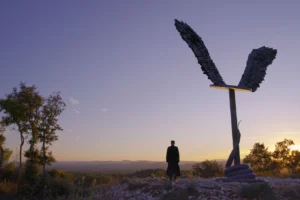
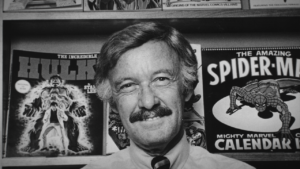
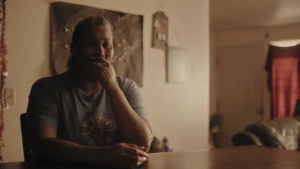
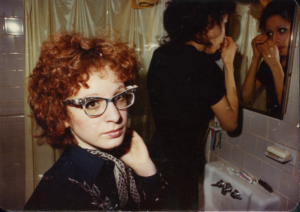
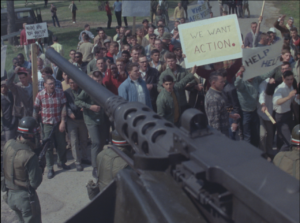
You need to be a supporter to comment.
There are currently no responses to this article.
Be the first to respond.